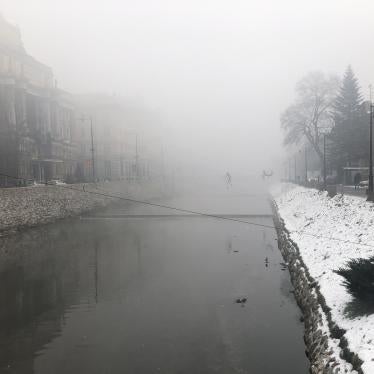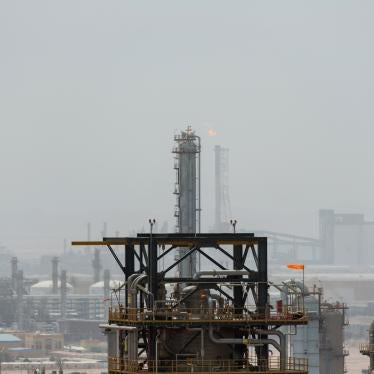September 7 is the International Day of Clean Air for Blue Skies. Each year, an estimated seven million people around the world are killed by effects from air pollution, which include cancer, strokes, and heart and lung diseases.
Around 99 percent of the world’s population lives in locations with air quality exceeding limits set by the World Health Organization (WHO). Pregnant people, children, older people, people with disabilities, and people with certain health conditions, such as respiratory and cardiovascular disease, are particularly at risk.
In 2022, Human Rights Watch documented air pollution’s devastating impact on people’s right to life and health in Bosnia and Herzegovina, where the World Bank estimates that 3,300 people die every year from exposure to air pollution. The country’s heavy reliance on coal for heating and electricity generation makes its cities some of the most polluted in the world during the winter months.
After publishing our findings, Human Rights Watch urged the minister for energy and mining in Republika Srpska (RS) entity to not issue a permit for a proposed coal plant, to which he agreed. Since then, the permit has been the subject of challenges in RS courts, with the entity’s Supreme Court upholding the suspension in July 2024.
Meanwhile, in March 2024, after a decade of activism by local civil society groups, a plant in Zenica, an industrial city 50 kilometers from Sarajevo, whose pollution comes from burning coal at high temperatures for steel production, ceased operation and was decommissioned after domestic and international pressure on Bosnian authorities.
A 2023 report by the Ministry of Environment, obtained by the Organized Crime and Corruption Reporting Project, revealed that the plant failed to mitigate industrial pollution.
Residents in Zenica are now breathing cleaner air. Dr. Samir Lemeš of Eko Forum Zenica recently told Human Rights Watch that after the plant’s closure, measured benzene, sulfur dioxide, and PM10 concentrations decreased below the safe limit for the first time in years.
Air pollution is an issue of global significance. Outdoor air pollution is directly linked to climate change as it is a significant source of greenhouse gas emissions. Limiting the burning of coal, oil, and gas improves air quality and slows global warming. Breathing clean air is a fundamental human right, and the realization of that right impacts us all.










